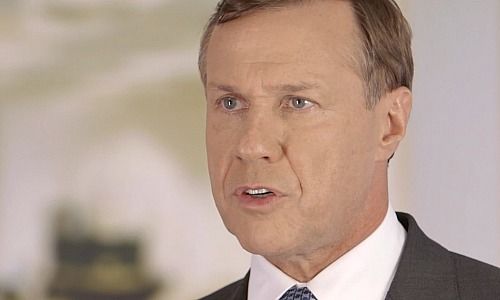After six years at the helm of Zurich Insurance Group, Martin Senn today announced his departure. Given the difficulties of the insurer in recent times, the announcement came as little surprise. The reasons however may lie further in the past.
The pressure at Zurich was mounting, following a profit warning, a failed takeover bid and mounting damages claims: now the captain has abandoned the ship he was in charge of for six years. Martin Senn had faced calls for his resignations after the current year saw a string of negative news:
1. Declining Profitability
Zurich had a difficult third quarter, with profit at $207 million, signifying a decline of four fifths compared with a year ago. For the full year, earnings are a third lower.
2. Miscalculation
The general insurance unit in the U.S. miscalculated the premiums for the year and as a consequence had to make provisions of $140 million. And in the car liability business, provisions for the $300 million damages claimed didn't suffice either, prompting a further provision by Zurich.
3. Failed Takeover
Zurich wanted to buy Britain's RSA insurance company, bowing to investor demands to finally expand its business and to use the cash held. Following the problems at the general insurance unit, Zurich pulled the plug at the last minute. Managers said they had to take care of the restructuring of the business and not about integrating another insurer.
4. Slump in Support
Martin Senn gradually lost the support of investors who wanted to see him spend their money. After all, the boss had $3 billion available for takeovers. Instead, he seemed to be selling rather than buying. Zurich divested the Russian business for accident and third party liabilities because of a sluggish performance, taking a loss.
5. Drop in Share Price
Zurich's share price dropped 13 percent so far this year, while the benchmark Swiss Market Index is almost unchanged. European rivals such as Allianz and Axa gained 22 percent and 33 percent respectively in the same period.
Seen over Senn's tenure, the share price combined with dividend payments has held up well enough, but started to give way from the middle of 2015. Since 2010, Zurich achieved an annual increase of 9.6 percent, compared with 10.3 percent at Allianz counted in franc terms and Axa's 6.4 percent.
6. Departure of Top Managers
Several top managers left the company this year. Mike Kerner resigned as CEO of the Global Life unit, for family reasons and Axel Lehmann, the head of risk, also departed, joining UBS as chief operating officer starting in 2016.
7. Joseph Ackermann, Source of Disquiet
Martin Senn worked well with Pierre Wauthier. When Joseph Ackermann joined them as chairman, the equilibrium was disturbed. Ackermann openly attacked the conservative approach preferred by the company and aimed his ire mainly at Wauthier, even though Senn carried a lot of responsibility for the strategy adopted. When Wauthier killed himself in the summer of 2013, Ackermann resigned.






























